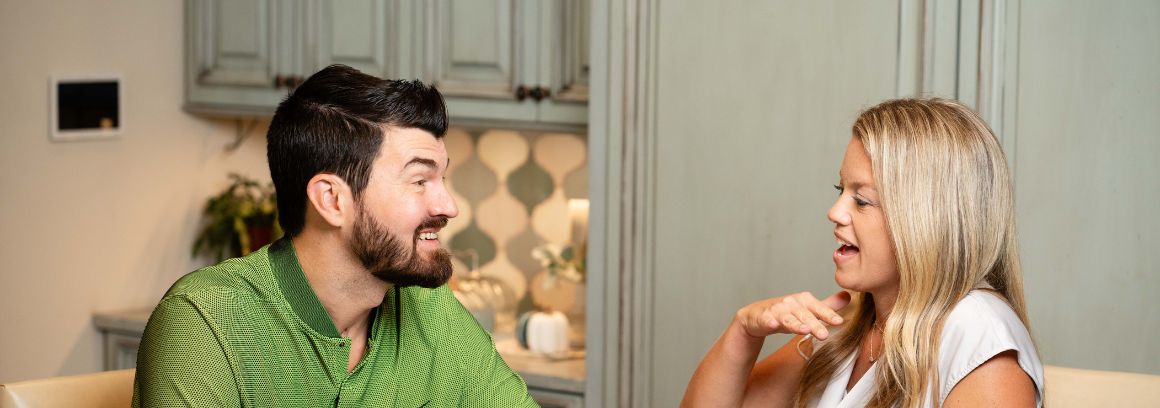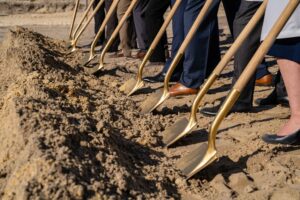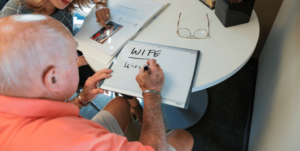Patient Inspires New Motor Speech Program at Brooks

Back to physical health resource hub
Thanks to the generous support of the Sorensen family, the Eric Sorensen Motor Speech Program is being developed at Brooks.
Patients are at the center of everything we do at Brooks Rehabilitation. Brooks strives to provide every rehabilitative option they might need after a disabling illness or injury. Sometimes patients and staff help us identify a gap in those services that we quickly work to fill.
This was the case with the creation of the Eric Sorensen Motor Speech Program. The new program at Brooks will ensure increased access to research-based services for patients with motor speech disorders.
It will benefit not only adults with apraxia, but also adults living with apraxia, dysarthria or slurred speech caused by muscle weakness,
Phase I of the program includes the development of a motor speech support group, which held its first session on October 30, and a formal partnership with universities in north and central Florida.
In addition, a team of Brooks’ home health and outpatient speech clinicians were identified to receive extensive training, standardized assessments and evidence-based therapy equipment for managing motor speech impairments.
“I could never truly put into words just how amazing Eric is or just how honored I am to be a part of the Eric Sorensen Motor Speech Program,” said Jaclynne Hurst, MS, CCC-SLP, program manager. “Eric has taught me so much about apraxia, neuroplasticity and the power of a positive attitude. I am beyond proud of his continued progress and so hopeful for the many other people who will now have direct access to the best motor speech treatment options thanks to Eric Sorensen’s legacy.”
How Recovery Led to a New Brooks Program
In January 2020, Eric Sorensen was standing near his mother Puschel Sorensen, who is a previous Brooks patient, when he had a seizure and fell, striking his head on the ground.
Eric suffered a major traumatic brain injury (BI) requiring a hemicraniectomy, a surgical procedure where part of the skull is removed to reduce the intracranial pressure. Five and a half weeks later, he was transferred to Brooks Rehabilitation Hospital – University Campus.
After Eric was released from the hospital, he was suffering from severe apraxia, a motor speech disorder caused by a neurological event. He needed intensive treatment that neither Brooks’ outpatient or home health therapists were able to provide.
Eric continued to make progress nonetheless with both his physical and communication abilities.
In May 2022, with the help of Jodi Morgan, MS, CCC-SLP, manager of the Brooks Rehabilitation Aphasia Center, Eric and Hurst were connected with an apraxia expert in Orlando, Fla., Lauren Bislick, Ph.D., CCC-SLP, CBIS, of the University of Central Florida. Dr. Bislick confirmed the apraxia diagnosis and agreed to oversee his recovery along with Hurst.
Today, Eric is able to communicate by using gestures appropriately, writing or typing his wants and needs and using some words. He is able to play golf, play guitar and walk the beach without any assistance.
However, Eric’s injury identified a gap in Brooks’ speech therapy services that we knew we needed to fix immediately. Chris Sorensen, Eric’s father, proposed the development of an intensive program for adults with acquired apraxia of speech, so that Brooks will be able to better serve future patients and families living with Eric’s diagnosis.
Read Eric Sorensen’s full recovery story.
More Information
For more information about the Eric Sorensen Motor Speech Program or support group at Brooks, please reach out to [email protected].


